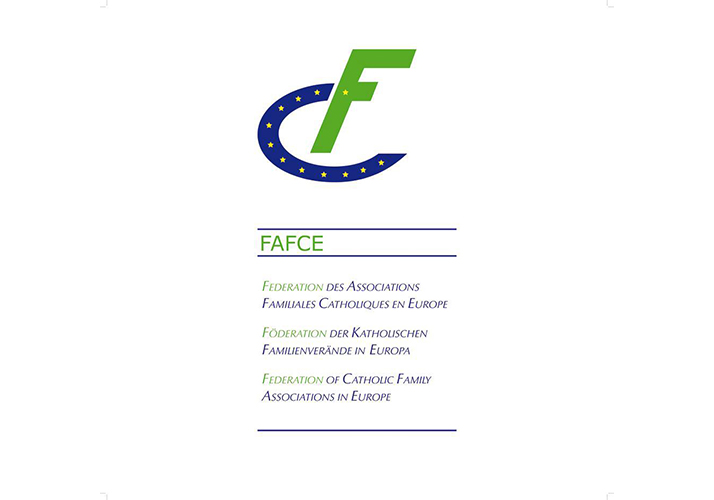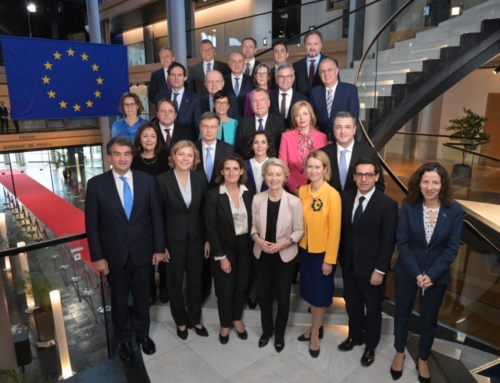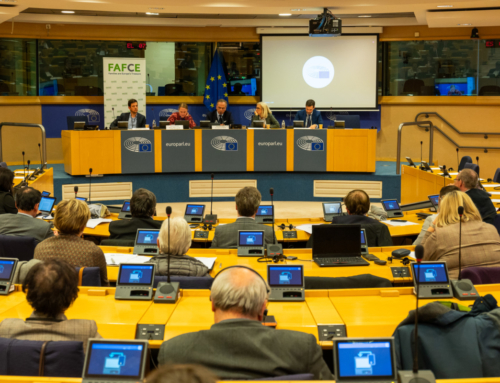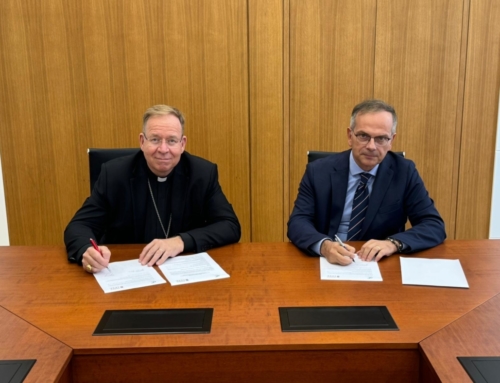Brussels, 18 June 2015
Contrary to Resolution 1763 adopted by the Parliamentary Assembly of the Council of Europe (PACE) on 10 October 2011, Medical Staff in Sweden have no legal right to conscientious objection in case of ethically sensitive issues which occur particularly at the beginning and the end of life. The European Federation of Catholic Family Associations (FAFCE) which has a participatory status with the Council of Europe submitted a collective complaint against Sweden in 2013 based on the above grounds and the right to health, together with the Swedish organisations Provita and Christian Medical Doctors and Students (KLM). The decision of the European Committee of Social Rights was made public today.
One of the issues addressed in the Collective Complaint against Sweden was freedom of conscience for medical staff. In its response to the Complaint the Swedish Government argued that freedom of conscience should be discussed in the work place and that if the issue can’t be resolved in a satisfactory manner for the employee, it can be brought before Court, based on article 9 of the European Convention on Human Rights which is incorporated into the Swedish law and on the grounds of the anti-discrimination law for the individual. The right to freedom of conscience is enshrined in article 18 of the Universal Declaration of Human Rights and in article 9 of the European Convention on Human Rights.
In its response the Government also notes that contacts have been established with the concerned employers and workers union: none of these could provide examples of situations where freedom of conscience had been problematic. Thus the Government considers that the problem is purely theoretical.
”It is of course very noteworthy that the Government stated that denied freedom of conscience only is a theoretical problem in its response to the European Social Rights Committee. In a recent complaint to the United Nations Swedish by European Centre for Law and Justice, medical staff – four midwifes, three general practioners and two pediatricians – testify of how the negative attitude towards freedom of conscience has limited them and their colleagues in their professional practice”, says Mrs Nordström, CEO or Provita and President of Scandianvian Human Rights Lawyers, and the legal representative of a Swedish midwife, Ellinor Grimmark, in an ongoing courtcase about freedom of conscience in Sweden. Mrs Grimmark lost her job and was refused employment due to her refusal to perform abortions as part of her tasks as a midwife at several Swedish hospitals. – “This is a concrete case that proves that freedom of conscience for medical staff is all but a theoretical problem in Sweden”, says Ruth Nordström.
In its decision the European Committee of SocialRights states that it has previously, in a Collective Complaint against Italy, considered whether freedom of conscience in accordance with article 11 of the European Social Rights Charter affects women’s access to abortion in Italy (International Planned Parenthood Federation vs. Italy (Complaint 87/2012)).
”The Committee establishes that article 11 is not applicable in this case, where the situation is the opposite, i.e. where women’s access to abortion is not affected. Since article 11 is not applicable the Committee does not take a position regarding the issue of discrimination according to article E in the European Social Rights Charter.” says Ruth Nordström.
The Swedish Federation of Medical Doctors (Läkarförbundet) and the Swedish Federation of Medical Staff (Vårdförbundet) together with the Swedish Planned Parenthood Federation (RFSU) recently claimed that ”conscience clauses threaten free abortion”. In other words the official representative bodies of medical staff in Sweden consider access to abortion as superior to freedom of conscience. FAFCE’s President Antoine Renard remarks that “this statement is a stark contrast to the position recently expressed in another Council of Europe Member State, namely France where The National Council of the Order of Medical Doctors publically opposes the suppression of the conscience clause related to abortion and “recalls that it is a fundamental provision foreseen by the medical deontological statute-book and by the public health law.”
Furthermore, the Committee considers that it cannot be proven that the number of abortions in Sweden is considerably high or that these abortions are a result of insufficient access to preventive measures.
FAFCE’s Secretary General Maria Hildingsson underlines that ”Sweden has among the highest abortion rates in Europe, year after year, statistics show this trend very clearly.” She considers that “it is regrettable that the European Committee of Social Rights does not take a clear stance in favour of stronger legal protection regarding the ethical issues addressed in the Complaint.”
Regarding sex selective abortions in Sweden, another issue reported in the Complaint and the treatment of infants surviving late term abortions the Committee states in its decision ”that FAFCE’s complaints relate to an issue which is very sensitive for many of the State Parties to the Charter, i.e. the question of when human life begins, which depends on the wide diversity of values and traditions in the different states.”. The Committee pursues by saying that “States Parties enjoy a wide margin of appreciation in deciding when life begins and it is therefore for each State Party to determine, within this margin of appreciation, the extent to which a foetus has a right to health.”
“The issue of infants surviving late term abortion has caught considerable attention across Europe during the recent months, namely in connection with a petition signed by over 200 000 citizens which will be debated in the Legal Affairs and Human Rights Committee of the PACE next week” underlines FAFCE’s President Antoine Renard.
“It is astonishing that the Committee argues that Member States should decide when life begins. It is an undisputed biological fact that life begins at conception. What the committee is likely to mean is when the unborn life should be protected and granted human dignity. This wording can hardly be due to ignorance, but rather it is a rhetorical approach that’s both tendentious and cynically” says Tomas Seidal, Vice President of KLM.
”The issue of abortion has been, is and will remain controversial for us who work in medical care, since it is a unique intervention with the consequence of putting an end to a human life. We also consider that the issue becomes particularly complicated when the unborn child is the object of medical care in other circumstances, and as such a patient with the right to life and health care. If it collides with a strongly established conviction and belief against extinguishing a life at its beginning, there must be room for conscientious freedom” says Tomas Seidal.
Contact:
Maria Hildingsson, Secretary General, European Federation of Catholic Family Associations (FAFCE)
+32 4 70 20 39 18
m.hildingsson@fafce.org
Ruth Nordström, President, Provita
+46 70 725 1917
ruth.nordstrom@provitasweden.org
Tomas Seidal, Vice-President, Christian Medical Doctors and Students (KLM)
ht.seidal@gmail.com







